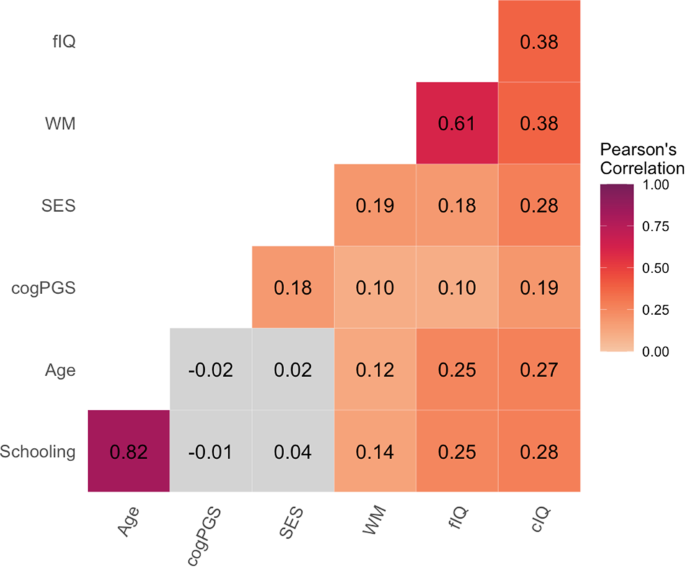Education significantly improves intelligence, according to a comprehensive meta-analysis. This finding underscores the value of educational interventions in cognitive development.
Education has always been seen as a cornerstone of personal and societal growth. Recent studies confirm that it plays a crucial role in enhancing intelligence. A comprehensive meta-analysis supports this claim, showing that education positively impacts cognitive development. Parents, educators, and policymakers should take note of these findings to shape future educational strategies.
Investing in quality education can lead to a smarter, more capable population. This makes it essential to focus on educational improvements for long-term benefits. Understanding the link between education and intelligence can help create more effective learning environments.
Historical Context
Understanding the historical context of education’s impact on intelligence helps us appreciate its evolution. Early studies laid the groundwork, while evolving methods refined our understanding. This journey highlights how education shapes minds and intelligence.
Early Studies On Education And Intelligence
Early studies on education and intelligence began in the late 19th century. Researchers aimed to understand if education could boost intelligence. They used simple tests to measure intelligence levels.
Intelligence Quotient (IQ) tests were developed to measure cognitive abilities. These tests helped compare educated and uneducated groups. Early findings suggested a link between education and higher IQ scores.
| Year | Study | Key Findings |
|---|---|---|
| 1905 | Binet-Simon Test | First modern IQ test, showed education influenced IQ. |
| 1920 | Terman’s Longitudinal Study | High IQ linked to educational attainment. |
Evolution Of Research Methods
Research methods evolved significantly over the 20th century. Early studies used simple observational methods. Later studies employed more sophisticated techniques.
Meta-analyses became popular. These studies combined results from multiple studies. This provided a clearer picture of education’s effect on intelligence.
- Initial studies used basic statistical methods.
- By the mid-20th century, more complex designs were used.
- Recent studies employ brain imaging and genetic analysis.
Modern research uses diverse tools to study education and intelligence. These include brain imaging, genetic analysis, and longitudinal studies. These tools offer deeper insights into how education shapes intelligence.

Credit: www.nature.com
Methodology
Understanding the impact of education on intelligence requires a systematic approach. Our methodology section explains the steps taken. It includes how studies were selected and how data was collected and analyzed. This ensures that our findings are reliable and comprehensive.
Selection Criteria
We carefully selected studies based on specific criteria. These criteria ensure that the studies are relevant and of high quality. The studies chosen had to meet the following conditions:
- Published in peer-reviewed journals.
- Investigating the effect of education on intelligence.
- Using validated intelligence tests.
- Having a clear methodology and sample size.
Studies were excluded if they did not meet these criteria. This helped maintain the integrity of our meta-analysis.
Data Collection And Analysis
Data was collected from each study according to a standardized protocol. Information was extracted on the following variables:
| Variable | Description |
|---|---|
| Sample Size | Number of participants in the study. |
| Age Range | Age group of participants. |
| Education Level | Years of formal education. |
| Intelligence Measure | Type of intelligence test used. |
The collected data was then analyzed using statistical software. We used meta-analysis techniques to combine results from different studies. This provided an overall estimate of the effect of education on intelligence.
The analysis included calculating effect sizes and confidence intervals. This helped quantify the impact of education on intelligence. The results were then interpreted to draw meaningful conclusions.
Key Findings
The meta-analysis revealed significant insights into how education influences intelligence. This analysis combined data from numerous studies to provide a comprehensive understanding of the relationship between education and cognitive abilities.
Impact Of Education On Iq Scores
Education has a notable impact on IQ scores. The data shows that each additional year of schooling can increase IQ by approximately 2 to 4 points. This effect is consistent across different age groups and educational levels.
A study involving over 600,000 participants found that longer schooling leads to higher IQ scores. This suggests that education plays a crucial role in cognitive development.
| Years of Schooling | IQ Increase |
|---|---|
| 1 year | 2-4 points |
| 5 years | 10-20 points |
| 10 years | 20-40 points |
Long-term Cognitive Benefits
Education offers long-term cognitive benefits beyond just IQ scores. Individuals with more education tend to have better problem-solving skills and enhanced memory function.
Longitudinal studies show that the cognitive benefits of education persist into old age. Educated individuals are less likely to experience cognitive decline.
- Improved problem-solving skills
- Enhanced memory function
- Reduced risk of cognitive decline
These findings highlight the lasting impact of education on the brain. Investing in education can thus lead to a lifetime of cognitive advantages.
Factors Influencing Outcomes
Understanding the factors influencing outcomes is crucial in determining how education impacts intelligence. These factors can vary widely and significantly affect results.
Socioeconomic Status
Socioeconomic status (SES) plays a vital role in educational outcomes. Children from higher SES backgrounds often have access to better resources. This includes quality teachers, educational materials, and extracurricular activities.
Higher SES families can afford private tutoring. They also provide a stimulating home environment. These advantages contribute to better academic performance and higher intelligence scores.
| SES Level | Resources Available | Impact on Intelligence |
|---|---|---|
| High | Private schools, tutoring, educational toys | Positive |
| Middle | Public schools, some extracurriculars | Moderate |
| Low | Limited access to quality education | Negative |
Quality Of Education
The quality of education significantly impacts intelligence. Schools with experienced teachers and rigorous curricula produce better outcomes.
Effective teaching methods and smaller class sizes contribute to better learning. Schools with good infrastructure and resources enhance the learning environment.
- Experienced Teachers: More knowledge and better teaching methods.
- Smaller Class Sizes: More individual attention and support.
- Good Infrastructure: Better facilities and learning tools.
Educational policies also play a role. Policies that focus on inclusivity and equal opportunities lead to better educational outcomes.
Age And Development
Education’s impact on intelligence varies across different ages and developmental stages. Understanding these differences can help optimize learning strategies. Let’s explore how education affects intelligence from early childhood to adulthood.
Early Childhood Education
Early childhood education plays a crucial role in brain development. During these formative years, children absorb information quickly.
- Preschool Programs: Quality preschool programs can enhance cognitive skills.
- Language Skills: Early education boosts language and communication abilities.
- Social Skills: Interaction with peers improves emotional intelligence.
Studies show that children who attend preschool have higher IQ scores later. They also perform better in school and have improved problem-solving skills.
Adolescent And Adult Learning
Learning during adolescence and adulthood also impacts intelligence. Though brain plasticity decreases with age, education continues to offer benefits.
- High School Education: Teens who stay in school develop better analytical skills.
- Higher Education: College and university education can lead to higher IQ levels.
- Adult Learning: Lifelong learning keeps the brain active and sharp.
Engaging in mentally stimulating activities helps maintain cognitive functions. Continuous education in adulthood can even delay cognitive decline.
| Age Group | Impact on Intelligence |
|---|---|
| Early Childhood | Boosts language and social skills, higher IQ later |
| Adolescence | Enhances analytical skills, better academic performance |
| Adulthood | Maintains cognitive functions, delays cognitive decline |
Overall, education at any age positively impacts intelligence. Tailoring educational strategies to different developmental stages can maximize these benefits.

Credit: www.nature.com
Global Perspectives
Education plays a crucial role in shaping intelligence. This section explores the global impact of education on intelligence.
Differences Across Countries
Countries have different education systems. These systems affect intelligence differently. For example, in Japan, students have long school hours. This rigorous schedule seems to boost their intelligence scores.
In contrast, Finland has a more relaxed system. Yet, Finnish students also perform well. This shows that different approaches can be effective.
Consider the United States. It has a diverse education system. Some students get top-tier education. Others lack basic resources. This creates a wide range in intelligence scores.
| Country | Education System | Impact on Intelligence |
|---|---|---|
| Japan | Long school hours | High intelligence scores |
| Finland | Relaxed school system | High intelligence scores |
| United States | Diverse education quality | Wide range in scores |
Cultural Influences
Cultural values impact education and intelligence. In many Asian countries, education is highly valued. Parents invest heavily in their children’s education. This results in higher intelligence scores.
In some cultures, practical skills are prioritized. For example, in some African communities, children learn through life experiences. This type of learning also boosts intelligence but in different ways.
Western cultures often focus on creativity and critical thinking. These skills also contribute to intelligence. Thus, culture shapes the way education impacts intelligence.
Below is a list of cultural influences on education:
- Parental involvement
- Value placed on education
- Types of skills emphasized
- Resources available
Each culture’s approach has unique benefits. Understanding these can help improve education worldwide.
Policy Implications
The meta-analysis on education and intelligence has profound policy implications. Policymakers can use these findings to drive meaningful educational reforms. These changes can help improve intelligence across various demographics. The following sections outline specific areas of focus.
Educational Reforms
Educational reforms are crucial for enhancing intelligence. Quality education should be accessible to all. Policies should focus on:
- Early childhood education: Investing in early education yields significant returns.
- Teacher training: Well-trained teachers can better nurture student intelligence.
- Curriculum updates: Curriculums should be regularly updated to include critical thinking and problem-solving skills.
Equitable funding is another important aspect. Schools in low-income areas need more resources. Better funding can improve infrastructure, teaching materials, and student outcomes. Inclusive education is also necessary. Policies should ensure that children with disabilities receive proper support.
Future Research Directions
Future research can help fine-tune these policies. Important areas for future research include:
- Longitudinal studies: Tracking students over time can provide deeper insights.
- Diverse populations: Studies should include various socioeconomic and cultural backgrounds.
- Intervention efficacy: Research on specific interventions can guide policy decisions.
By focusing on these areas, future research can offer more precise recommendations. This can help in designing effective educational policies. Continual assessment will also be key. Regularly assessing the impact of these policies will ensure they remain effective and relevant.
Frequently Asked Questions
How Much Does Education Really Boost Intelligence?
Education significantly boosts intelligence by enhancing cognitive skills, problem-solving, and critical thinking. It offers structured learning and knowledge acquisition, which contribute to intellectual growth.
Is Intelligence Improved By Education?
Yes, education can improve intelligence. Learning new skills and knowledge enhances cognitive abilities. Education stimulates brain development and critical thinking.
How Does Iq Correlate With Educational Performance?
IQ often correlates positively with educational performance. Higher IQ scores usually predict better academic achievements. Students with higher IQs tend to grasp concepts quickly and perform well in exams. However, motivation, teaching quality, and other factors also play significant roles in academic success.
Does Studying Improve Iq?
Studying can improve IQ by enhancing cognitive skills and knowledge. Consistent mental challenges boost brain function and problem-solving abilities.
Conclusion
The meta-analysis highlights a strong link between education and improved intelligence. Quality education significantly boosts cognitive abilities. This underscores the importance of access to comprehensive educational resources. Investing in education is crucial for intellectual growth. Prioritizing education can lead to smarter, more capable societies.
- India All State Medical Colleges List 2024
- Top 20 Ranking MEdical Colleges in India 2024
- What is the Main Idea of Importance of Education: Unlocking Future Success
- How Do You Know If Learning Has Taken Place: Key Indicators
- How to Become an Education Specialist in South Africa: Expert Guide
- What is the Difference between Education And Value Education: Explained
- How Much Does Education Improve Intelligence: Meta-Analysis Findings
- How Do You Know If Learning Objectives were Released: Key Indicators
- How to Measure the Effectiveness of an Educational Program: Proven Methods
- Can Education IRA Be Used for Room And Board?: Uncover the Facts
- What Do You Think the Purpose of Education is: Unlocking Potential
- When is the Best Time to Get an Education Quizlet: Top Tips




















